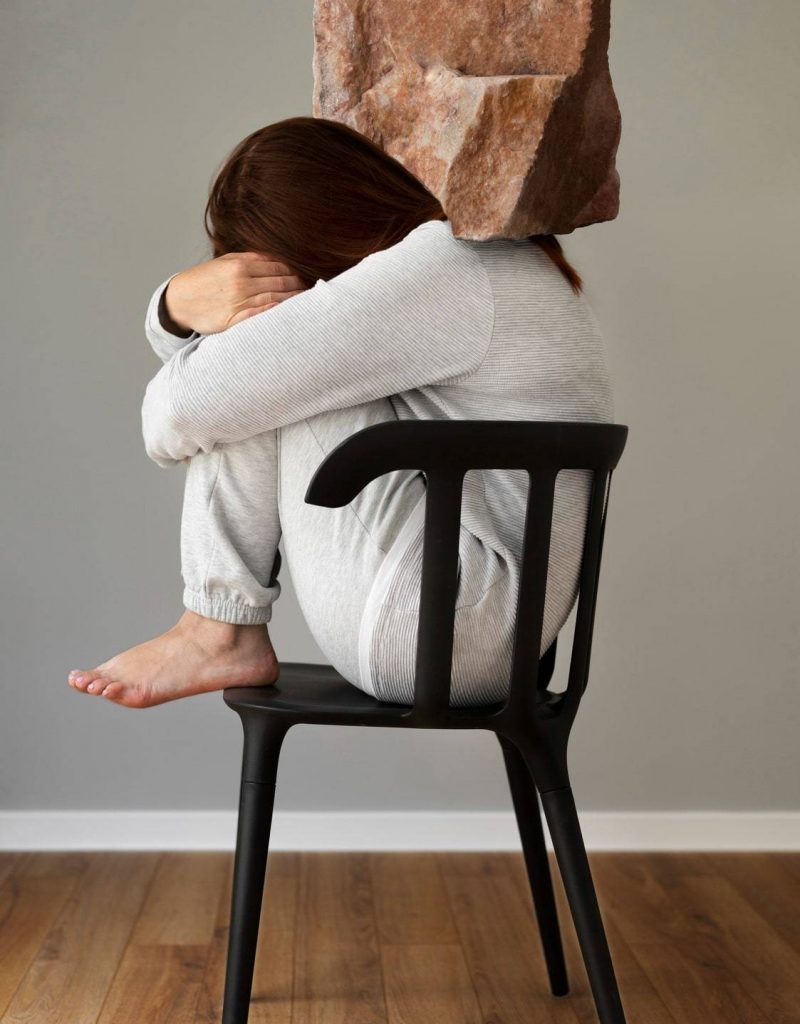Self-Harm Treatment
Home / Mental Health Treatment / Self-Harm Treatment

Self-Harm Treatment
It’s really important to understand the different types of self-harm so we can help people who are dealing with it. Cutting, burning, and any other kind of self-harm can all be a sign of deep emotional pain and anxiety.
We want to help people understand and empathize with those who are hurting themselves by talking about this important topic and giving them advice on how to help.
Our goal is to raise awareness, get rid of the stigma around mental health, and help make the world a better place where people treat mental health just like they would treat physical health.
Join us as we try to figure out what self-harm is and what the best ways to treat it are.
What Is Self-Harm?
Basically, self-harm is when you intentionally hurt yourself physically. It’s also called self injury or self mutilation.
It’s important to remember that self-harm isn’t a way to kill yourself, it’s a way to cope with the pain of life. You can cut yourself, burn yourself, hit yourself, scratch yourself, or even pull your hair out. It’s estimated that 1 in 5 teens and young adults do this at some point.
Self-harming can be a great way for people to express and let go of their feelings, since it helps to distract them from their emotions for a while. It can also help them get back on track when they’re feeling overwhelmed or overwhelmed.
Avisa Recovery Programs
ADDICTION TREATMENT THAT ISN’T COOKIE-CUTTER
One of the first steps when seeking treatment for substance abuse is the detoxification process. Here you are medically supervised and managed through withdrawal process to rid the body of drugs & alcohol.
Residential inpatient treatment is when a client lives on-site 24 hours a day, 7 days a week while receiving intensive inpatient treatment. Learn more about inpatient treatment and how it can help you on your journey.
The partial day program at Avisa Recovery combines the best of aspects inpatient and outpatient treatment to form a hybrid program that allows you to experience inpatient therapies on an outpatient basis.
Find out why the innovative intensive outpatient program at Avisa Recovery is your best choice when seeking an outpatient addiction treatment program in Ocean County, New Jersey.
Our outpatient program will enable your professional life to become limitless. We offer the tools for you to become the best you can be while being sober! If you’re in Ocean County, don’t wait another day to start your recovery.
The family program at Avisa Recovery is an integral part of our programming. Family therapy is an essential part of the recovery process because it allows members of the entire family system to learn how to recover as a unit while supporting their loved-one in recovery.
The Reasons Behind Self-Harm
If you’re dealing with self-harming, it’s important to figure out why you’re doing it. Self-harming is often a sign of intense pain and anxiety that you can’t express in words.
- For some people, self-harming can be a way to get a sense of relief from a stressful situation or to take control of their feelings.
- It’s important to remember that self-harm doesn’t just affect people of a certain age or gender. It could affect anyone, no matter where they come from or how much money they make.
- Depression, anxiety, BPD, PTSD, and other mental health issues can all lead to self-harm.
- It’s important to get a good look at your mental health so you can get the help you need.
Let Us Help You Overcome Addiction
Request a Confidential Callback Now
Common Misconceptions About Self-Harm
There are some misunderstandings about self-harming that can make it hard to understand and empathize with people who do it.
It’s easy to think that self-harming is something that’s just for show or to get attention. But it’s actually something that’s really personal and private, and people can go to a lot of trouble to hide their scars or injuries.
Another myth about self-harm is that it’s just something that happens when you’re a teenager or young adult. It’s true that self-harm does happen during this time, but it can also happen when you’re older or even later in life.
Get Approved. Get Help.
We Work With Most Major Insurance Providers
- Aetna
- Amerihealth
- Anthem
- Beacon
- Behavioral Health Systems
- BCBS—Most BlueCross & BlueShield Plans
- Carelon Behavioral Health
- CareFirst
- Cigna
- ComPsych
- Coventry
- Empire BlueCross BlueShield
- GHI
- Highmark
- Humana
- Magellan
- MagnaCare
- Meritain Health
- MultPlan
- NYSHIP (New York State Insurance Plan)
- Optum
- Oxford
- PHCS
- Self-Pay
- TRICARE
- UHC
- UMR
- VA Insurance
- 90 Degree Benefits
At this time, we do not accept Medicaid or Medicare
The Impact Of Self-Harm On Mental Health
Self-harming can really mess with your mental and physical health. It’s usually a sign that you’re dealing with some kind of emotional pain or anxiety. You may feel guilty, ashamed, or even hate yourself for hurting yourself, which can just keep repeating the cycle. Plus, the physical injuries you get from self-harming can cause infections, scars, or other health issues.
Self-harming can also lead to feelings of loneliness and withdrawal from social situations. People may feel embarrassed or worried about what other people think of them, so they may stay away from social activities or hang out with other people. This can make the feeling of loneliness and sadness even worse.
Effective Treatment Approaches For Self-Harm
Luckily, there are lots of treatments that can help you get over self-harming and find healthier ways to cope. But keep in mind that not every treatment works for everyone, so it’s important to find the right one for you based on your individual needs.
- Cognitive-behavioral therapy (CBT) for self-harm.
- Dialectical behavior therapy (DBT) for self-harm.
- Support groups and peer support for self-harm.
- Medication and self-harm.
Cognitive-behavioral therapy (CBT) for self-harm :-
If you’re dealing with self-harm, CBT is a great way to help. It’s evidence-based and helps you figure out what triggers your self-harm and how to change it. Plus, it can help you find healthier ways to express your emotions and improve your overall mental health.
Dialectical behavior therapy (DBT) for self-harm :-
Another great way to treat self-harm is Dialectical Behavior Therapy (DBT). DBT is especially useful for people with BPD. It’s a combination of CBT and skills training in things like mindfulness, emotional regulation, how to handle stress, and how to work well with others. It’s a great way to give people different tools and methods to help them control their emotions and stop the urge to hurt themselves.
Support groups and peer support for self-harm :-
If you’re dealing with self-harming, support groups or peer support can be really helpful. It’s a great way to connect with other people who have gone through the same thing as you, and to get some validation and support from them. It’s a safe place to talk about your struggles, get advice on how to deal with them, and hear from other people who are going through the same thing. It’s important to find a support group or organization that has a good reputation for being honest and open, and that doesn’t judge you.
Medication and self-harm :-
Medication for self-harm can sometimes be part of a treatment plan. Antidepressants, like SSRIs, can help manage depression or anxiety that could be causing self-harm. But it’s important to remember that medication isn’t a one-size-fits-all solution for self-harm – it’s something that needs to be prescribed and followed up with a qualified healthcare professional.
Seeking help for self-harm
Therapy and support groups are usually the main ways to treat self-harm, but medication can also be part of the solution. Medications can help treat mental health issues that can lead to self-harm, like depression, anxiety, and borderline personality disorder.
Medication isn’t a panacea for self-harm, and it’s usually best to use it in combination with other treatments. It’s important to work with your doctor to decide if medication is the right choice for you, taking into account the pros and cons, and any potential side effects.






